Queensland election: Wanted — leadership to tap Sunshine State’s potential
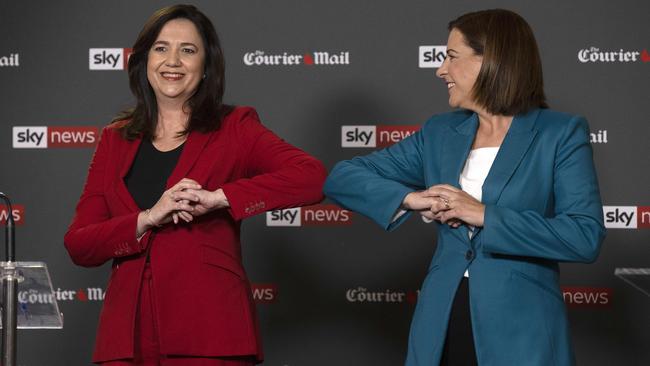
Apart from the visionary 10.2km Cross River Rail system to be finished in 2024, it would be difficult to list a single substantial achievement of the past two terms. The wheels have turned in education and health, where the government has done its job. But the overarching narrative of the Palaszczuk years adds up to centralism, bigger government, trade union domination, cronyism and scandals. Long before COVID-19 was heard of, red ink had become the new black of its budget management; shuffling government debt is a subspecialty.
Under the cover of COVID, the government’s failure to deliver a budget before the election is one of the disgraces in public administration in Australia in recent years. It is indicative of the Palaszczuk government’s incompetence and lack of confidence in its finances. The Morrison government, in contrast, was upfront with the public before the last federal election. It brought forward its 2019 budget to April 2 and it served as the Coalition’s manifesto for the May 18 election. If Labor wins on Saturday, the public will have to wait until November 30 to see the state’s books. It could be an ugly set of numbers. At last count, as Sarah Elks reported this week, the state’s debt is forecast to rise to at least $102bn by mid-next year. Most of it was accumulated before COVID.
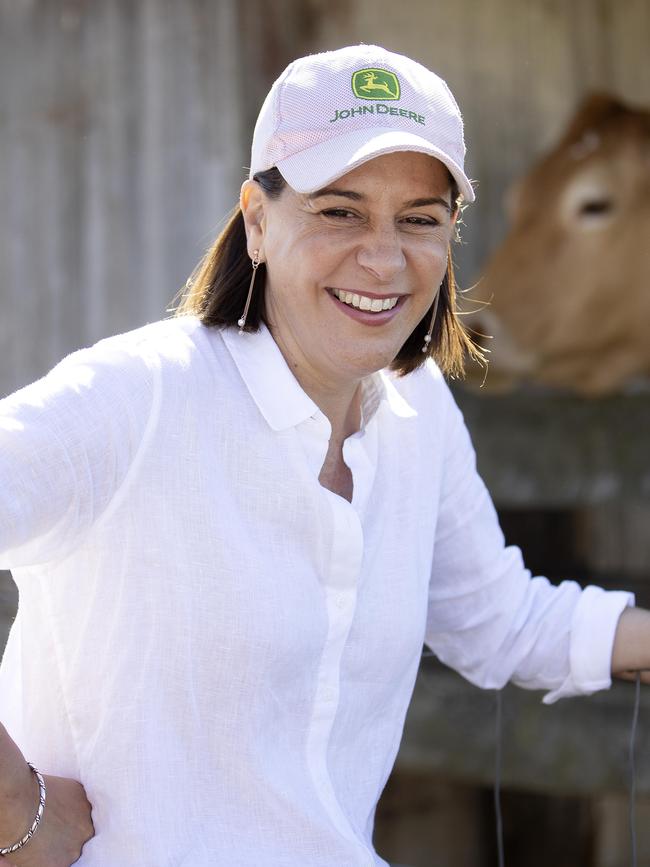
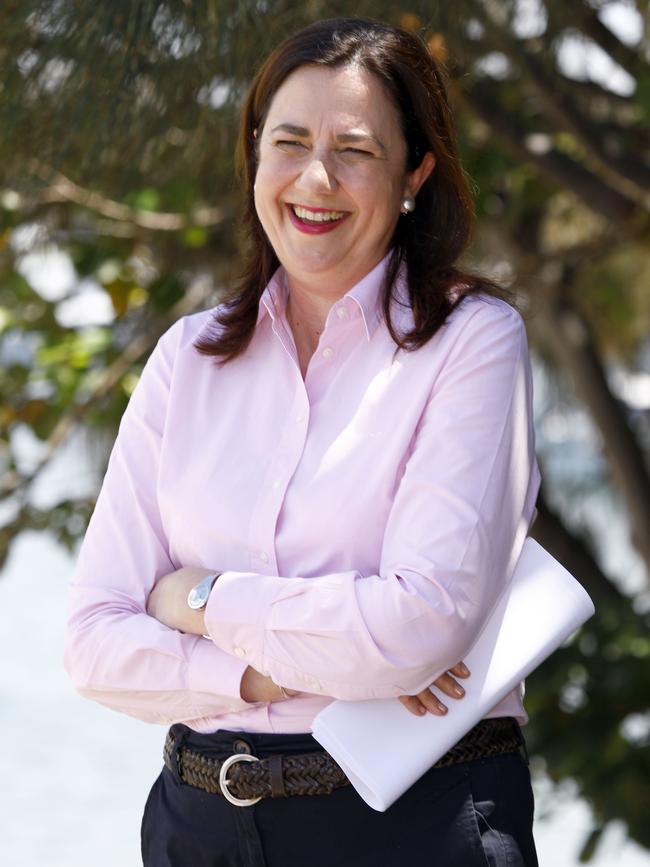
Through it all, Ms Palaszczuk has developed into a formidable politician, tapping into the populist parochialism that has been intrinsic to Queensland’s political culture for generations. Pushing ahead of schedule on euthanasia has provoked divisions, including among rusted-on Labor supporters. Her instincts — and expensive taxpayer-funded market research, which has been hidden from the public — have guided her response to the coronavirus pandemic. Her catchcry, “all about protecting Queenslanders’’, has occasionally gone too far. Last month, her selfish “in Queensland, we have Queensland hospitals for our people’’ stance stirred consciences after the death of an unborn twin whose mother, from northern NSW, was unable to quickly access the expert medical help she needed in Brisbane.
In the absence of substantial economic achievement, however, COVID-19 has been a handy campaign crutch for Ms Palaszczuk. But, while many regard her COVID policies as a positive for her re-election chances, keeping the state’s borders locked down for months longer than necessary has decimated the tourism and hospitality sector, especially among small businesses in the regions.
The high cost of Labor’s COVID policy is evident in Queensland’s 7.7 per cent jobless rate, the worst of any state or territory. Victoria, with 6.7 per cent unemployment, fared better last month. However bleak the picture in the north, it could be worse.
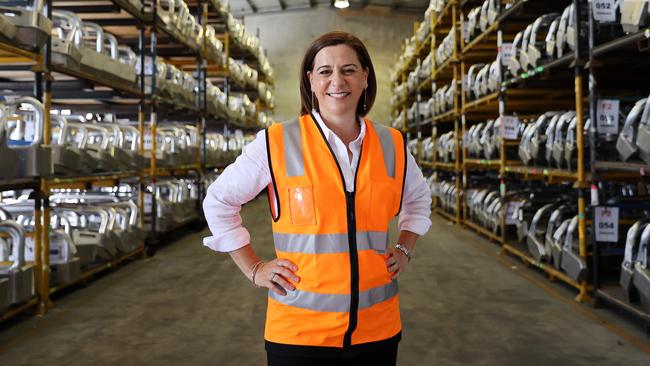
After Saturday, Ms Palaszczuk and Opposition Leader Deb Frecklington could find themselves in a hung parliament, scrambling for support to form government. Both refuse to entertain such a notion publicly. But a Labor-Greens alliance would have all the problems of the Gillard-Greens minority government writ large. In a state that remains overly dependent on coal royalties and LNG exports, Greens policies designed to bring stasis to the mining sector would plunge an already shaky economy into penury. The Greens’ platform amounts to enormous taxation and gargantuan spending. Their policies would triple mining royalties, levy banks and developers and lavish spending on 100,000 public housing dwellings and much else. In any alliance or balance-of-power arrangement, Katter’s Australian Party, which has three seats, would also have a costly list of demands to benefit its northern base.
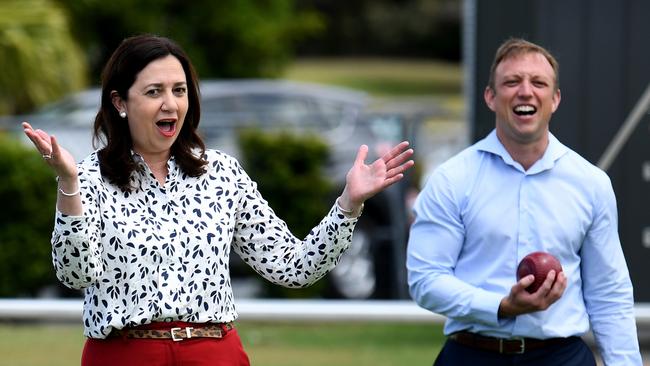
Savvy Queenslanders understand private industry, and not the public sector, is the engine room of investment, growth and job creation. Over the past five years, many people north of the Tweed have looked on in envy as the Baird then Berejiklian governments invested the proceeds of asset leases and sales in NSW and created the conditions for business, enterprise and aspiration to flourish.
Ms Palaszczuk, in contrast, seems bent on taking Queensland back 50 or 60 years, when a steady job in the public service was what many working families aspired to for their children. The public sector needs good people and some thrive in it. Today’s youngsters deserve as wide a range of options as possible, however.
As the third-largest state in the nation, and therefore too big to fail, Queensland needs a government with big ambition for a state that is so rich in mineral resources; agriculture; water, especially in the north; tourist attractions; decentralised transport and university infrastructure and the potential to build on its underdeveloped industrial base in centres such as Gladstone.
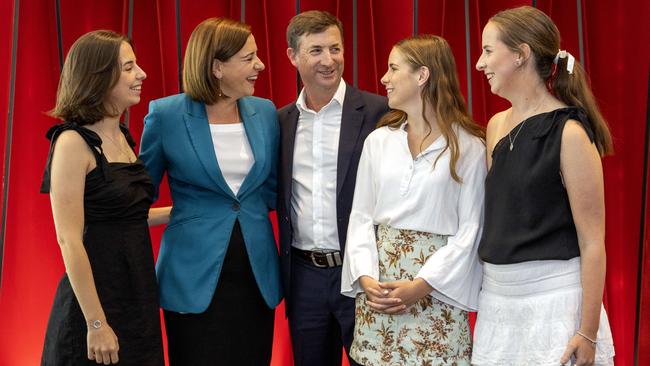
Premier Wayne Goss, who in 1989 ousted the Nationals after 32 years, came to government with a vision to put the state’s corrupt underbelly to rights and to modernise the economy, including the industrial base. Peter Beattie’s Smart State vision fostered local expertise in medical and scientific research and high-technology value-added industries. The legacies of both former Labor premiers endure.
As they face the future after COVID, voters looking for a circuit breaker will struggle to find it in the LNP. Ms Frecklington, who is not dissimilar in age and background to Ms Palaszczuk, has established herself as a leader. She did well to see off the absurdity of former LNP president and Clive Palmer staffer Dave Hutchinson serving two masters while trying to destabilise her leadership. If elected, she would step up to the role of premier, as Ms Palaszczuk did. Policy, not personality, is the LNP’s weak spot.
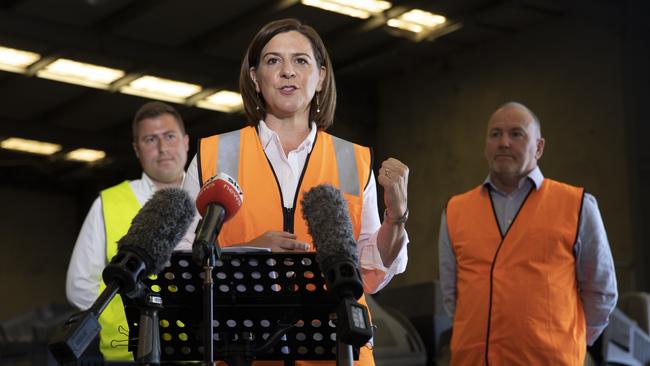
Queensland needs a safer pair of hands on the economic reins and the LNP should be able to provide them. It would have the advantage of not being beholden to the self-interest of trade unions. The Palaszczuk government’s talent base is alarmingly narrow. Ten of the cabinet of 18 were union officials or delegates before entering parliament and five were political advisers.
The LNP’s base is broader. Its policies are costed, although two key promises — widening the Bruce Highway to four lanes from Gympie to Cairns (which is long overdue) and the new Bradfield irrigation scheme for northwest Queensland — are 15 years away and depend on federal support. Releasing the LNP costings on Friday, shadow treasurer Tim Mander played up the party’s intention to find $800m in efficiency savings in the public sector over four years.
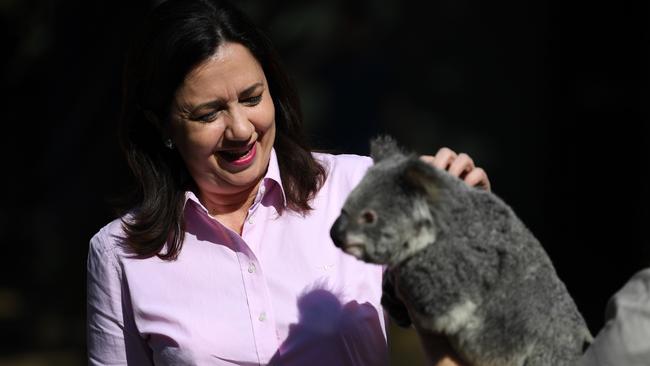
Mr Mander’s pledge that “there will be no asset sales, nor will there be any forced redundancies”, however, will make funding the state’s COVID recovery and budget repair extremely challenging. In its eagerness not to repeat the perceived mistakes of the Newman years, the LNP, unwisely, locked itself into opposing privatisation early on in opposition. Like Labor, it lacks a proper budget repair strategy.
Queenslanders should have no illusions, however. Without judicious asset sales and leases, which helped kickstart the impressive development in NSW in recent years, the economic road back for Queensland will be long and hard. The AAA credit rating is moving further out of reach with every budget. Next week, after 3.3 million votes in 93 electorates have been counted, Queensland will embark on its first four-year parliament. That break with tradition will be an opportunity for the incoming government to take a longer-term view of the state’s needs and opportunities. Broadening its economic base is essential.
The new government would also do well to revisit the strategy that worked so well for the Goss government’s treasurer from 1989 to 1996, businessman Keith De Lacy. Based on low taxes and good financial management, it was designed to optimise the environment to allow business to flourish, limiting government interference. At its heart was a “fiscal trilogy” to deter big-spending ministers. It involved fully funding long-term liabilities such as superannuation; funding social capital such as schools and hospitals from recurrent revenue and borrowing only for commercial assets that could service their debt.
The Palaszczuk government lacks the vision and strategy to take the state forward. Five years is enough; it does not deserve nine years. The LNP has not impressed from opposition. But, on balance, we believe voters would do well to back it as a better option.


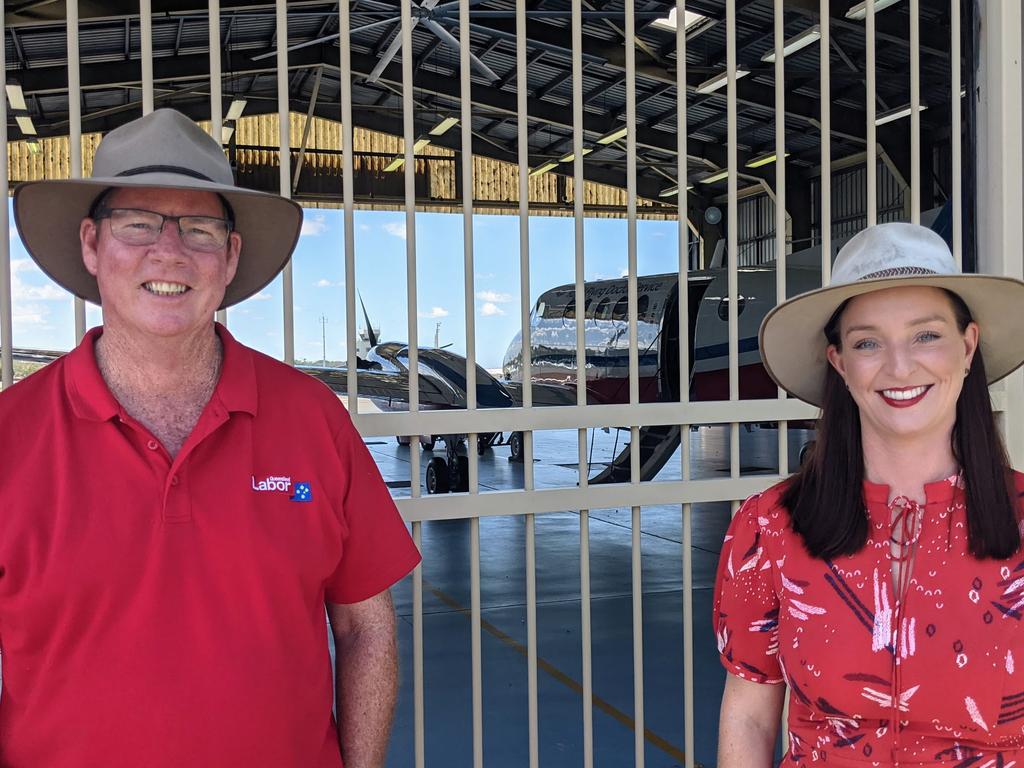
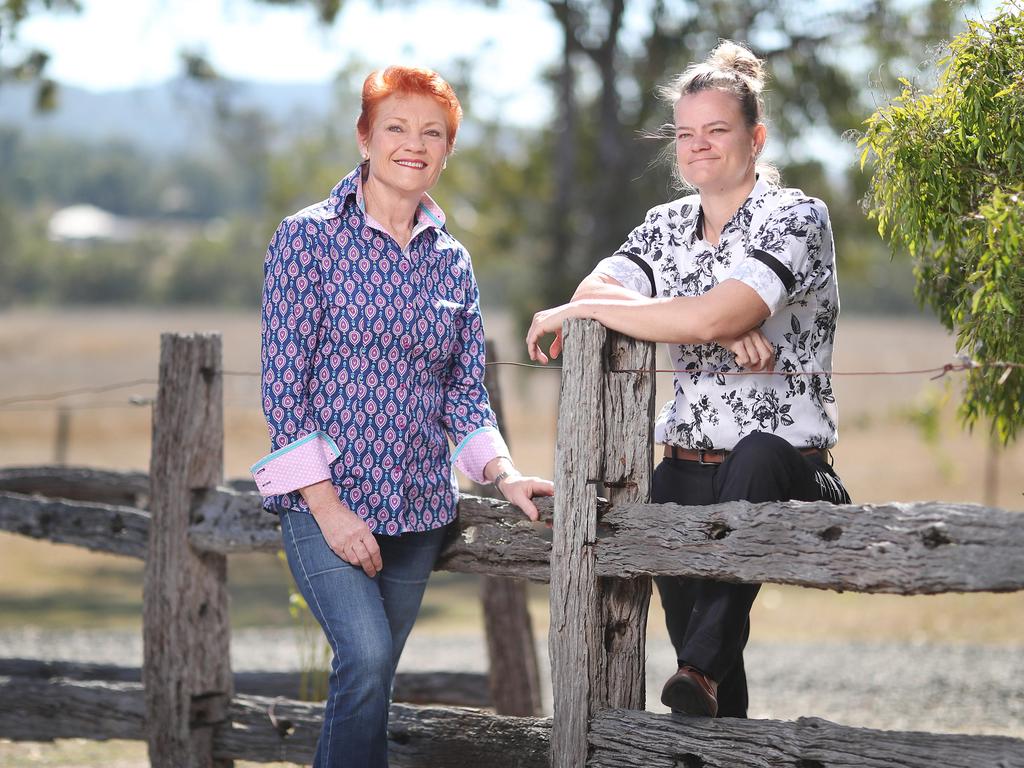
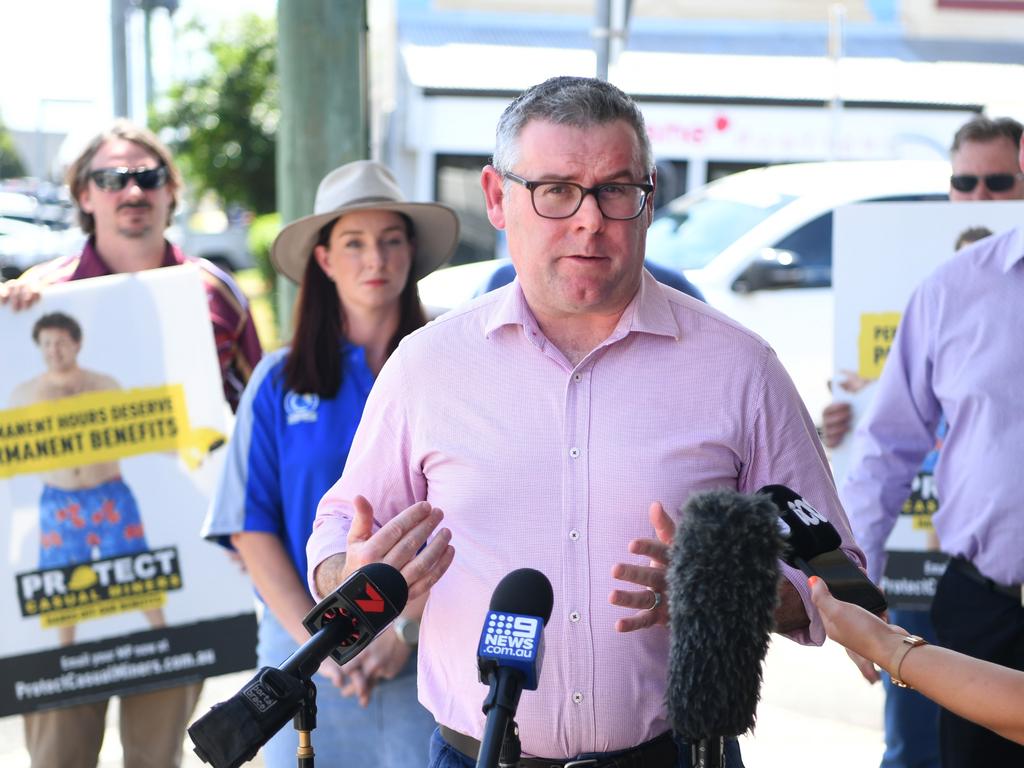

Queensland Premier Annastacia Palaszczuk and her Labor team were not ready for government when they surprisingly trumped the competent but abrasive Campbell Newman in February 2015. Judging on performance, they are still not ready.